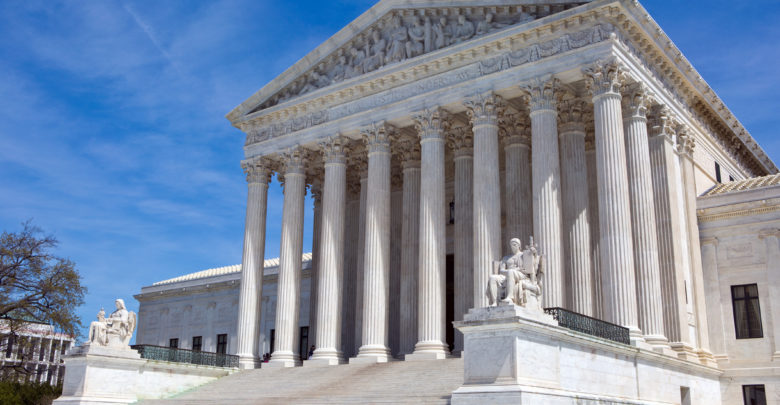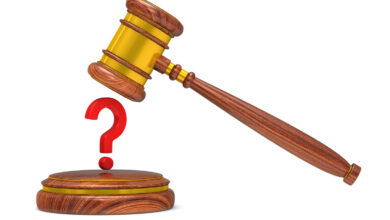Will the Supreme Court Go Narrow or Broad in Ruling on Free Speech vs. Equal Protection?

The Supreme Court is now faced with the seemingly thankless task of declaring winners and losers between people who insist that they are entitled to equal treatment from businesses open to the general public and those who insist on the right to refuse service in circumstances that would force them to violate their core religious beliefs.
On Monday, the Court heard oral arguments in 303 Creative LLC v. Aubrey Elenis. The case was brought by Lorie Smith, a graphic designer in the Denver area who “blends art with technology to create custom messages” that celebrate marriages. Her suit challenges a Colorado public accommodations law that prohibits discrimination based on a host of factors, including sexual orientation. Smith claims that being required to create custom-made “artwork” celebrating same-sex marriages would violate her First Amendment right to freedom of religion.
At first blush, there doesn’t appear to be any room to reconcile (1) the belief that religion cannot be used as a cover for otherwise unlawful discrimination with (2) the belief that no anti-discrimination law should force people to violate their sincerely held religious beliefs. In a violent collision between the irresistible force of religious freedom and the immovable object of equal protection, something has to give. The Court, it seems, must declare a winner.
Or maybe not.
In this case, reports of the arguments presented by the opposing parties and the questions asked by the justices at the oral argument suggest that they might be leaning toward a resolution that will give each side at least a partial victory. Coming at it from another direction, maybe everybody (except perhaps Lorie Smith) can go away mad.
The trick here might be to find a way to distinguish Smith’s case from others where individuals have refused to offer services otherwise available to the general public on the purported ground of religious freedom. It is one thing, the argument goes, to decline to sell a wedding cake to a same-sex couple, but something different to force an “artist”—say somebody who produces highly customized messages celebrating a marriage—to craft a message that conflicts with her religious beliefs. One involves discriminating against people because of who they are. The other involves the precise activity—speech—that lies at the core of the First Amendment. Stated simply, the Court might rule in Smith’s favor on the narrow ground that the very nature of the service she provides—the expressive use of speech and design to create highly individualized messages—entitles her to First Amendment protection. At the same time, the Court could make it clear that its ruling applies only in cases where individuals decline to engage in speech that is inconsistent with their religious beliefs, not to cases where individuals refuse to provide otherwise publicly available service to people because of who they are.
There were strong indications at the oral argument on Monday that the Court might go in this direction—emphasis on “might.” According to reports, at least some of the Court’s conservative justices may be poised to rule in favor of Smith—in effect to find that her religious beliefs trump the anti-discrimination provision of Colorado’s public accommodations laws—but only on narrow grounds that would not necessarily permit providers of less speech-oriented public services to discriminate.
Justice Brett Kavanaugh sent a strong signal that this was the direction he favored, as the New York Times reports:
“The case comes down to a fairly narrow question,” Justice Brett M. Kavanaugh said. “Are they more like the restaurants and the jewelers and the tailors,” he added, suggesting that those businesses are not engaged in protected speech, “or are they more like, you know, the publishing houses and the other free speech analogues?”
Justices Neil Gorsuch and Amy Coney Barrett echoed similar themes. Gorsuch reportedly observed that at the heart of this case was the question of whether the speech at issue was “expressing the maker’s point of view or the couple’s point of view.” Barrett was even more explicit: “It’s about the message and not about the sexuality of the couple.”
Those comments would tend to signal a willingness on the part of at least three of the justices on the conservative wing of the Court—Kavanaugh, Gorsuch, and Barrett—to rule narrowly in Smith’s favor without declaring open season for American businesses to discriminate on the basis of sexual orientation. Add Chief Justice John Roberts to this list, and a viable picture of the Court’s upcoming decision begins to come into focus.
The routine exercise of judicial restraint could, in other words, soften the blow of a ruling in favor of Smith.
But recent history suggests, to say the least, that judicial restraint is not the drug of choice of the more activist of the conservative justices, and that the existence of an obvious, narrow basis to make a narrow decision doesn’t preclude an unnecessarily broad and sweeping decision more in line with the justices’ political ideology than their legal analysis. Judicial restraint, after all, didn’t stop Justice Samuel Alito and four of his colleagues from overturning the nearly half-century-old precedent of Roe v. Wade in Dobbs, when a decision to uphold Mississippi’s 15-week anti-abortion statute could easily have been made on far narrower grounds that would have left Roe in place.
But even a narrowly framed decision might not definitively resolve whether LGBTQ couples can be refused service by bakeries, florists, and others otherwise open to the general public.
The Court already sidestepped that precise issue in 2018 with Masterpiece Cakeshop v. Colorado Civil Rights Commission. In a decision that one commentator characterized as “remarkably narrow,” the Court ruled in favor of a Colorado baker who refused to bake a cake to celebrate the marriage of a same-sex couple, but at the same time it contorted itself to sidestep the real issue raised by the case: whether businesses serving the general public can discriminate on the basis of sexual orientation by invoking religious freedom. That neat trick was accomplished by showing that the Colorado Civil Rights Commission had been affirmatively hostile to religion, and this was, by itself, sufficient to justify ruling in favor of the baker. According to the majority decision, that unique feature of that particular case made it unnecessary to articulate a generally applicable rule, leaving the outcome of other “cases like this” to await “further elaboration in the courts.”
It is impossible to predict whether 303 Creative will provide that further elaboration.
The Court could use the doctrine of judicial restraint—which it is not above hauling out whenever convenient and ignoring whenever inconvenient—to rule in favor of Smith without clarifying whether in other circumstances, such as refusing to provide same-sex couples with goods and services that do not implicate speech in the same direct way that Smith’s custom-made messages do, similar actions would be protected by the First Amendment.
Or the Court could draw a bright line: Anti-discrimination laws forbid businesses from refusing to provide same-sex couples with the same goods and services that they provide everybody else, while at the same time the First Amendment permits individuals to refuse to say things that violate their religious beliefs.
Or the Court could do what it did in Dobbs and reach far beyond the narrow question presented in 303 Creative, thus effectively declaring open season for any discrimination perpetrated under the banner of religious liberty.
My guess is that we will see all of the above in the ultimate decision, plus a dissent from the liberal wing of the Court to the effect that Smith should not win her case at all. It would not surprise me to see multiple justices expressing conflicting views in the opinion of the Court, concurrences, and dissents.
So don’t hold your breath on this one. Nobody, except possibly Lorie Smith, is likely to be happy with the decision—least of all the LGBTQ community.




